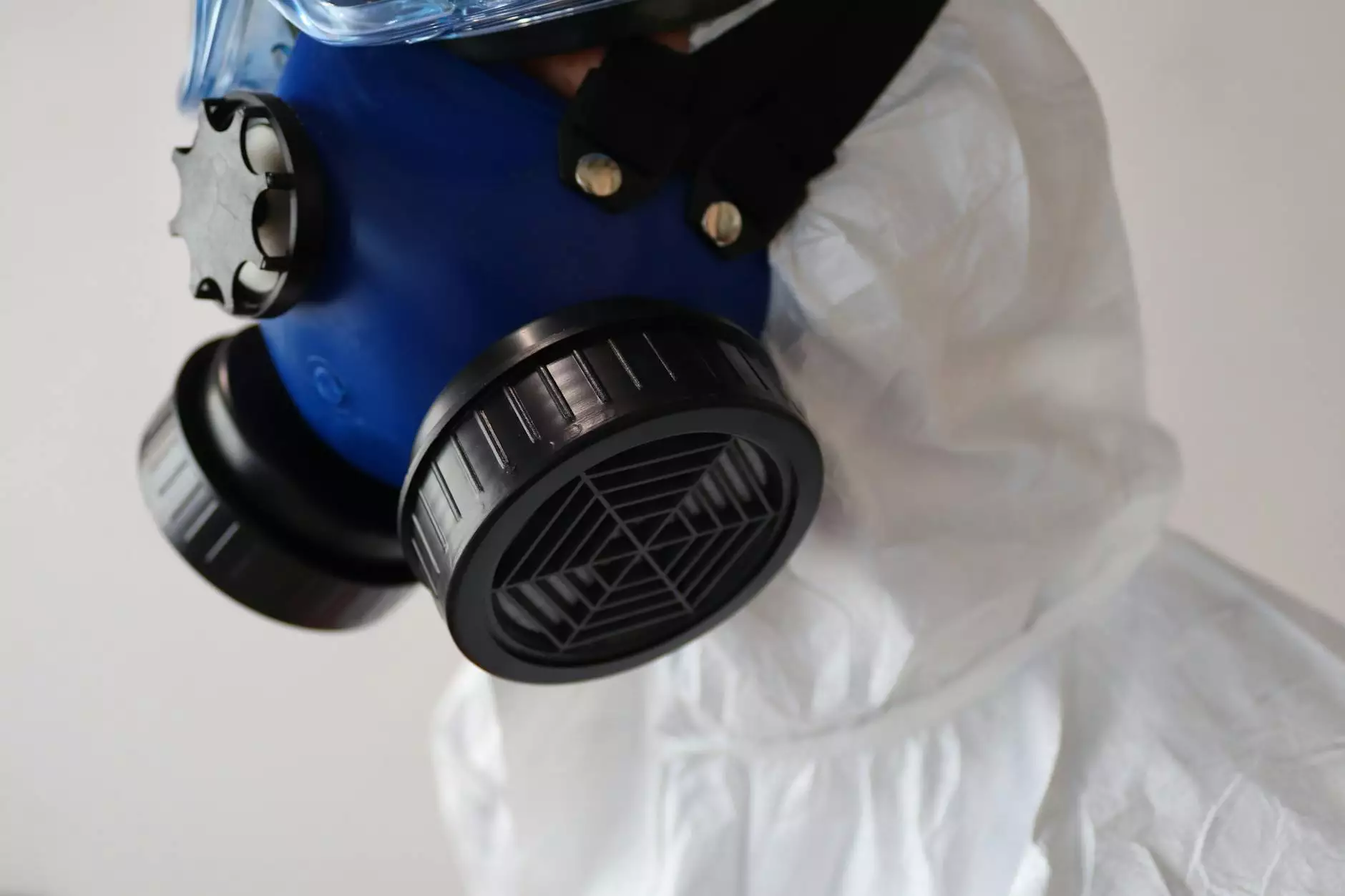Unveiling the World of a Premier Beverage Manufacturer: Driving Innovation and Quality in the Beverage Industry

In today's dynamic and competitive market, the role of a beverage manufacturer extends far beyond simple production. It encompasses innovation, sustainability, quality assurance, and strategic growth to meet the ever-evolving demands of consumers worldwide. As a vital player in the beverage store ecosystem, leading beverage manufacturers not only supply a diverse array of drinks but also set industry standards, influence market trends, and contribute significantly to economic development.
Understanding the Role of a Beverage Manufacturer
The term beverage manufacturer refers to companies that design, produce, and distribute a wide spectrum of liquid consumables. This includes soft drinks, bottled water, fruit juices, energy drinks, dairy-based beverages, tea and coffee-based products, functional drinks, and alcoholic beverages, among others. Successful beverage manufacturers possess a deep understanding of consumer preferences, regulatory standards, and technological advancements to deliver products that satisfy quality, safety, and taste expectations.
The Core Responsibilities of a Beverage Manufacturer
- Research & Development (R&D): Innovating new flavors, formulations, and packaging solutions to capture consumer interest
- Quality Control & Assurance: Ensuring ingredients and final products meet safety standards and quality benchmarks
- Manufacturing Operations: Managing efficient production processes with minimal waste and maximum output
- Supply Chain Management: Streamlining procurement, logistics, and distribution for timely delivery
- Marketing & Branding: Positioning products effectively within competitive markets
- Sustainability Initiatives: Implementing eco-friendly practices to reduce carbon footprint and promote environmental responsibility
Key Factors Contributing to Success in Beverage Manufacturing
To stand out in a saturated market, a beverage manufacturer must excel in several core areas. These include innovation, quality, consumer-centricity, operational excellence, and sustainability. Let’s explore these critical pillars that underpin industry leadership:
1. Innovation and Product Diversity
Innovation remains the lifeblood of the beverage industry. Leading beverage manufacturers invest heavily in R&D to develop unique flavors, healthier options, and functional drinks that cater to the modern consumer's desire for health-conscious choices. Diverse product portfolios enable manufacturers to reach broader audiences, adapt quickly to trends such as low-sugar, organic, or keto-friendly beverages, and maintain a competitive edge.
2. Commitment to Quality and Safety
Unwavering dedication to quality control ensures that every product leaving the manufacturing line meets or exceeds safety standards. This entails rigorous testing, adherence to regulatory frameworks like FDA and EPA guidelines, and implementing HACCP (Hazard Analysis Critical Control Point) practices. Consumers trust brands that consistently deliver safe and high-quality beverages, leading to repeat purchases and brand loyalty.
3. Efficient Manufacturing Processes
Utilizing cutting-edge technology such as automation, robotics, and data analytics enhances operational efficiency. Modern beverage manufacturers optimize their production lines to reduce waste, improve yield, and lower costs. Advanced manufacturing also enables rapid scaling of product lines in response to market demand, a crucial factor in staying competitive and maximizing profitability.
4. Strategic Supply Chain and Distribution
A robust supply chain ensures that raw materials are procured efficiently and that finished products reach markets swiftly. Leading beverage manufacturers forge strong relationships with logistics providers and employ real-time tracking systems to monitor inventory levels, reduce lead times, and prevent stockouts. Perfecting distribution channels also involves understanding regional preferences and customizing approaches for different markets.
5. Brand Development and Consumer Engagement
Creating a compelling brand image through innovative marketing, social media engagement, and customer relationship management fosters loyalty and brand affinity. Successful beverage manufacturers leverage storytelling, sustainable practices, and influencer collaborations to connect with consumers on an emotional level, turning customers into brand ambassadors.
6. Sustainability and Environmental Responsibility
Modern consumers are increasingly eco-conscious, prompting beverage manufacturers to adopt sustainable practices. These include using recyclable packaging materials, reducing water and energy consumption, and minimizing carbon emissions throughout the supply chain. Implementing green practices not only aligns with global environmental goals but also appeals to the eco-aware demographic, thereby enhancing brand reputation.
The Evolution of the Beverage Industry: Trends and Innovations
The industry has witnessed remarkable transformations driven by technological advances, changing consumer preferences, and socio-economic shifts. Here are some key trends shaping the future of beverage manufacturing:
1. Health and Wellness Focus
There is a rising demand for healthier beverages—products low in sugar, free from artificial additives, and enriched with functional ingredients like vitamins, minerals, probiotics, and adaptogens. Beverage manufacturers are innovating to develop drinks that boost immunity, improve digestion, and enhance overall well-being.
2. Plant-Based and Natural Ingredients
Plant-based formulations and natural ingredients are now at the forefront of product innovation. Consumers seek clean-label products with transparent sourcing and minimal processing. Manufacturers incorporate botanical extracts, natural sweeteners, and organic ingredients to meet this demand.
3. Personalization and Customization
The rise of data analytics and digital technology enables beverage manufacturers to offer personalized beverage options. Custom-flavored drinks, tailored nutritional profiles, and targeted packaging are becoming increasingly popular, fostering a more engaging and individualistic customer experience.
4. Sustainability and Eco-Friendly Packaging
Environmental consciousness pushes companies toward sustainable practices, including biodegradable bottles, reusable containers, and eco-friendly labels. These initiatives not only reduce environmental impact but also resonate strongly with eco-aware consumers.
5. Digital Transformation and Automation
Integrating IoT (Internet of Things), AI (Artificial Intelligence), and automation into manufacturing and distribution processes enhances efficiency, quality control, and real-time monitoring. Digital tools facilitate better forecasting, inventory management, and rapid response to market shifts.
How to Build a Successful Beverage Manufacturing Business
Starting or expanding a beverage store element within your enterprise requires strategic planning and emphasis on core competencies. Here are essential steps to establishing a resilient and prosperous beverage manufacturer:
1. Conduct In-Depth Market Research
Understanding consumer preferences, emerging trends, and competitor offerings is vital. Analyze regional tastes, health trends, and demographic data to tailor product development accordingly.
2. Focus on Innovation and Differentiation
Invest in R&D to develop unique formulas, attractive packaging, and compelling branding that distinguish your offerings from competitors.
3. Invest in Quality Assurance
Implement rigorous quality control systems to maintain consistency, safety, and compliance with regulatory standards. Building a reputation for quality is essential for long-term success.
4. Leverage Sustainable Practices
Adopt environmentally friendly manufacturing processes and packaging solutions to appeal to eco-conscious consumers and reduce operational costs.
5. Embrace Technology and Digitalization
Utilize automation, data analytics, and digital marketing tools to improve efficiency and expand reach.
6. Develop Strong Distribution Networks
Craft reliable and flexible logistics strategies to ensure your products reach markets promptly, whether local, regional, or international.
Conclusion: Embracing the Future of Beverage Manufacturing
In the highly competitive landscape of the beverage store industry, the success of a beverage manufacturer hinges on innovation, quality, sustainability, and strategic agility. Companies that prioritize customer needs, embrace technological advancements, and commit to environmental responsibility are well-positioned to lead and grow in this vibrant sector.
At Wana Beverage, we embody these principles, continuously striving to deliver exceptional beverages that satisfy consumers' evolving tastes and values. Whether you are a budding entrepreneur or an established player, aligning with these industry insights will propel your business toward long-term success and positive impact.









